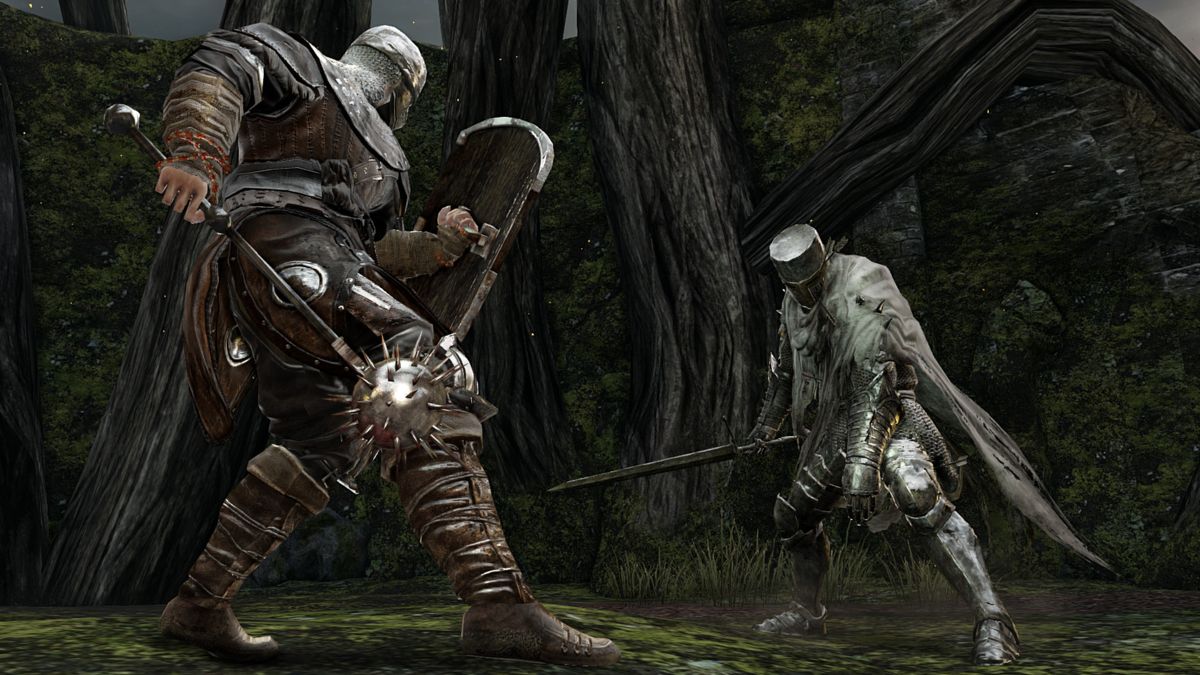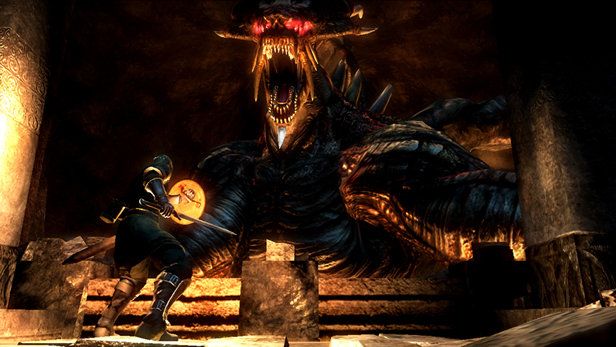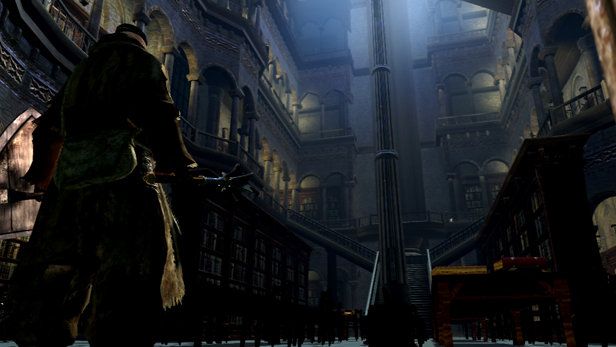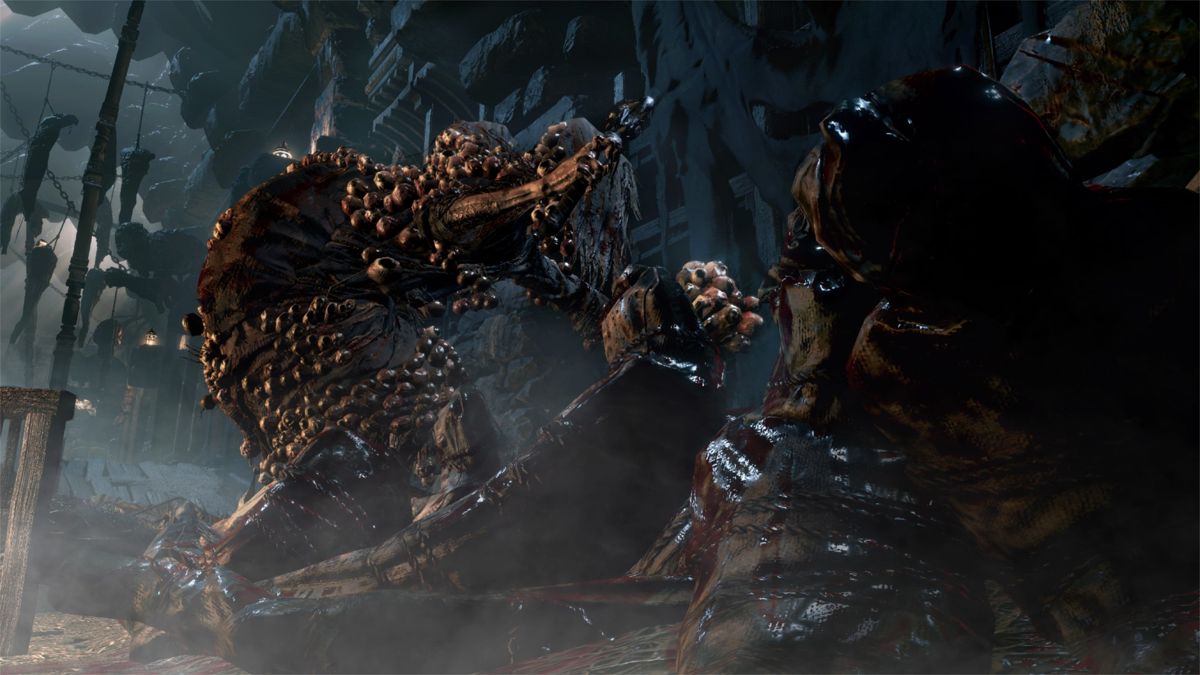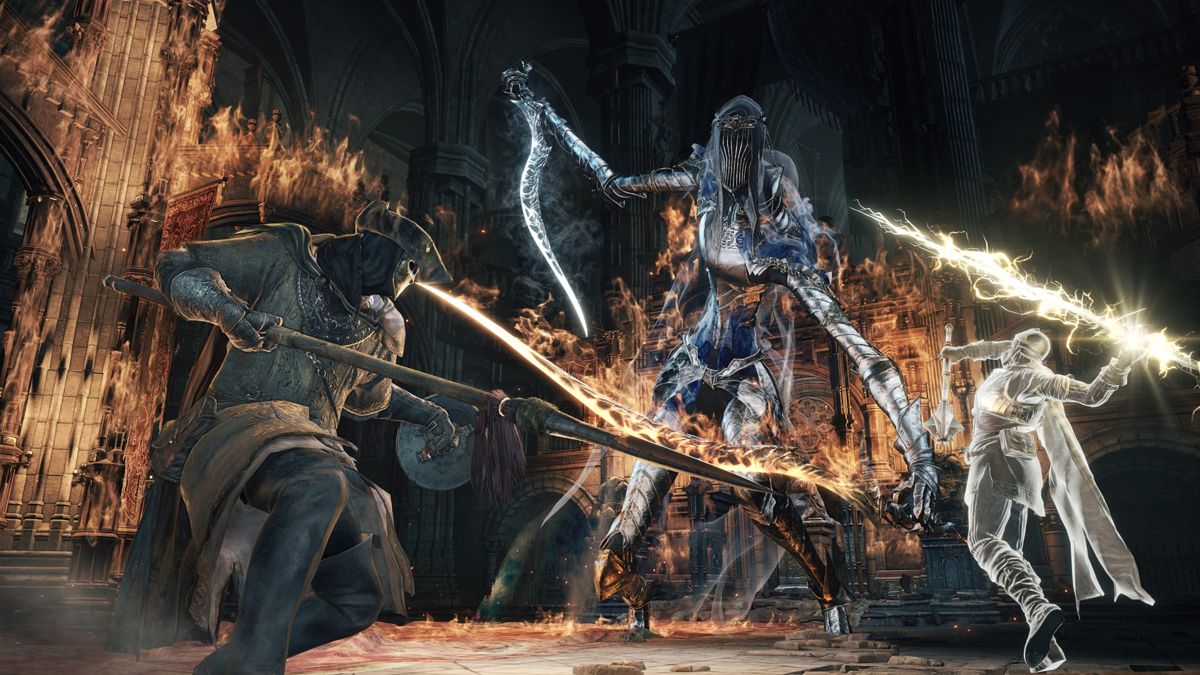Results
Dark Souls 2
fantasy, challenging, hidden areas
Dark Souls II, released in 2014, is the third installment in the Souls series, following Demon's Souls and Dark Souls. Developed by FromSoftware and published by Bandai Namco Games, it continues the challenging action RPG gameplay the series is known for. Set in the kingdom of Drangleic, the game follows a cursed undead protagonist seeking to break the cycle of hollowing. The narrative is characteristically cryptic, with much of the lore and backstory conveyed through item descriptions and environmental storytelling. Key features and changes from its predecessor include: 1. A refined combat system with dual-wielding options and power stancing for compatible weapons. 2. Introduction of Soul Memory, a mechanic that tracks the total number of souls collected, affecting multiplayer matchmaking. 3. Limited enemy respawns, with enemies eventually disappearing after being killed multiple times. 4. A more interconnected world design compared to the first Dark Souls, though less vertically integrated. 5. Expanded character customization and respec options through Soul Vessels. 6. Improved graphics and performance compared to its predecessor. 7. Introduction of the Company of Champions covenant, which increases game difficulty. 8. A revamped New Game+ system with additional enemies and modified item placements. The game received critical acclaim for its challenging gameplay, atmospheric world design, and improved technical performance. However, some fans of the series criticized certain changes, such as enemy placement and world design, as departing from the original Dark Souls formula. Dark Souls II was later re-released as "Scholar of the First Sin" in 2015, which included all DLC content, improved graphics, and modified enemy and item placements.
Demon's Souls
fantasy, challenging, hidden areas
Demon's Souls is a critically acclaimed action role-playing game developed by FromSoftware and published by Sony Computer Entertainment for the PlayStation 3 in 2009. It's widely considered the spiritual predecessor to the Dark Souls series and Bloodborne. Key features and aspects of the game include: 1. Challenging gameplay: Known for its punishing difficulty and unforgiving combat system, which became a hallmark of later FromSoftware titles. 2. Unique online features: Incorporates asynchronous multiplayer elements, allowing players to leave messages for others, see ghosts of other players, and invade or assist in other players' worlds. 3. World Tendency system: A dynamic difficulty adjustment based on player actions, affecting enemy strength and item availability. 4. Hub-based world structure: The Nexus serves as a central area, with five distinct, interconnected worlds branching from it. 5. Innovative boss battles: Features memorable and often massive boss encounters that require specific strategies to overcome. 6. Atmospheric setting: Set in the kingdom of Boletaria, the game presents a dark fantasy world with intricate level design and environmental storytelling. 7. Character customization: Offers deep character creation and progression systems, allowing for various playstyles and builds. 8. Unique approach to death and progression: Players lose souls (currency and experience) upon death, but can recover them if they reach the point where they died. As someone familiar with the genre, you'll recognize Demon's Souls as the game that largely established the template for the "Soulsborne" subgenre, influencing numerous games that followed in its wake.
Dark Souls
fantasy, challenging, hidden areas
Dark Souls is a critically acclaimed action role-playing game developed by FromSoftware and published by Namco Bandai Games. Released in 2011 for PlayStation 3 and Xbox 360, with a PC port following in 2012, it is the spiritual successor to Demon's Souls. As a fan of the genre, you'll appreciate Dark Souls for its punishing difficulty, intricate level design, and cryptic storytelling. The game is set in the decaying world of Lordran, a realm cursed by undeath. You play as the Chosen Undead, tasked with ringing the Bells of Awakening and ultimately deciding the fate of this dying world. Key features that set Dark Souls apart include: 1. Interconnected world design: The game's areas are masterfully intertwined, creating a sense of discovery as you unlock shortcuts and new paths. 2. Challenging, skill-based combat: Precise timing and strategic approaches are crucial, with a focus on stamina management and learning enemy patterns. 3. Unique online elements: The innovative asynchronous multiplayer system allows players to leave messages, see others' deaths, and engage in cooperative or competitive play. 4. Deep character customization: A wide array of weapons, armor, and spells allow for diverse playstyles and build options. 5. Boss fights: Memorable, often massive bosses that serve as significant milestones and tests of skill. 6. Environmental storytelling: Much of the lore and narrative is conveyed through item descriptions, character dialogue, and environmental details. Dark Souls is renowned for its influence on the action RPG genre, spawning its own subgenre often referred to as "Souls-like." Its success led to two direct sequels and spiritual successors like Bloodborne and Elden Ring.
Bloodborne
challenging, hidden areas, interconnected world
Bloodborne is an action role-playing game developed by FromSoftware and published by Sony Computer Entertainment exclusively for the PlayStation 4 in 2015. As a spiritual successor to the Souls series, Bloodborne shares many similarities with its predecessors while introducing its own unique elements. Set in the Gothic-inspired city of Yharnam, the game features a faster-paced combat system compared to the Souls games, emphasizing aggression and quick reflexes. The game replaces shields with firearms, which are primarily used for parrying enemies and creating openings for visceral attacks. Key features include: 1. A Lovecraftian horror-inspired setting and storyline 2. Trick weapons that can transform between two forms, altering attack patterns and strategies 3. A unique "Rally" system that allows players to regain lost health by quickly counterattacking 4. Procedurally generated Chalice Dungeons for additional gameplay and loot 5. A online multiplayer system for cooperative and competitive play The game's difficulty, intricate level design, and cryptic storytelling are consistent with FromSoftware's reputation established in the Souls series. Bloodborne received critical acclaim for its atmospheric world-building, challenging gameplay, and refined combat mechanics, cementing its place as a standout title in the action RPG genre.
Dark Souls 3
fantasy, challenging, hidden areas
Dark Souls 3, released in 2016, is the final installment in FromSoftware's critically acclaimed Dark Souls series. As a seasoned player of the genre, you'll recognize it as an action role-playing game that continues the series' tradition of punishing difficulty, intricate level design, and cryptic storytelling. Set in the kingdom of Lothric, the game tasks you with defeating the Lords of Cinder and linking the First Flame to prevent the apocalypse. The combat system refines mechanics from previous entries, introducing weapon arts and a focus bar that adds depth to the already challenging encounters. Dark Souls 3 is notable for its faster-paced combat compared to its predecessors, drawing some influence from Bloodborne, another FromSoftware title. The game features a diverse array of weapons, armor, and spells, allowing for various build options and playstyles. The interconnected world design, a hallmark of the series, is present but less emphasized than in the original Dark Souls. Instead, the game offers more linear progression through its beautifully crafted, gothic-inspired environments. As with previous entries, online elements are seamlessly integrated, allowing for cooperative play, PvP invasions, and the classic messaging system that lets players leave hints or misleading information for others. Dark Souls 3 is often regarded as a fitting conclusion to the series, combining elements from previous games while refining the formula that made the franchise so influential in the action RPG genre.
Filters
Search Term
Properties
Platforms
Tags (include)
Tags (exclude)
Get Your Game Noticed
Advertise your game with MetroidvaniaDB and reach a community of people who know exactly what they're looking for:
Your game.
Native & Banner Ad Spots
Multi-week Discounts
Game Launch Packages
Discounts for Indie Developers

